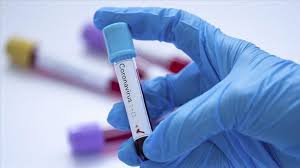“Health workers are humans like us. They work in hospitals and go home. We regard hospitals as a community. It goes beyond health workers just wearing face masks.
“Majority of doctors remove their face masks once they leave the confines of the hospitals. You will see them go to parties or social functions and come back. So, it goes beyond the hospital.
“In fact, I can tell you confidently that most of them did not get it from the hospitals.
“Don’t forget that health workers are human beings and also have their own idiosyncrasies. They live in the community, listen to news and read newspapers. Yet, some of them don’t believe in it. It is, indeed, a problem,” he said.
The surgeon, who felt many healthcare workers were not careful enough about their health, urged Nigerians to learn to take responsibility for their actions.
“We recorded a case recently in our hospital where a very senior doctor died. She contracted the disease during her son’s marriage.
“The way forward is for all of us to be responsible. Don’t forget that in the first wave, people talked about conspiracy surrounding COVID-19.
“Now, one year down the line, we are talking about the vaccines. It is important to note that it is not just down to the government alone. This is why I earlier said we need massive awareness,” he added.
NIMR Director-General, Prof. Babatunde Salako, also emphasised the need to protect health workers as the nation patiently waits for COVID-19 vaccine.
He said that it was paramount to protect oneself from getting infected, warning that for every health worker that contracts the disease, hundreds of patients are at risk.
Salako disclosed that aside from distributing non-invasive ventilators to heads and representatives of health institutions, the event was to further observe how both patients and doctors are faring during the second wave of the virus.
“We have set up a protocol to observe how patients and health workers fare with the non-invasive ventilators.
“You will recall how we got about 140 of these ventilators and gave out 60 of them to Federal Ministry of Health, as well as eight to each teaching hospitals selected for management of severe COVID-19 cases.
“The idea of non-invasive ventilators came up sometime last March when COVID-19 pandemic hit the world.
“People died in Europe and America. We thought that if we ever get to that level of morbidity and mortality, the nation might not be able to cope, especially when it was obvious that we don’t have enough ventilators,” he said.
Continuing, he explained that the non-invasive ventilators, a breathing support administered through a face mask, nasal mask, or a helmet, would aid in the treatment of COVID-19 patients with chronic respiratory challenges until a vaccine is available in the country.
source: Punch

 A Consultant Oral and Maxillofacial surgeon, Prof. Wasiu Adeyemo, on Wednesday says many of the doctors who tested positive for COVID-19 did not contract the infection from their respective workplaces.
A Consultant Oral and Maxillofacial surgeon, Prof. Wasiu Adeyemo, on Wednesday says many of the doctors who tested positive for COVID-19 did not contract the infection from their respective workplaces.




